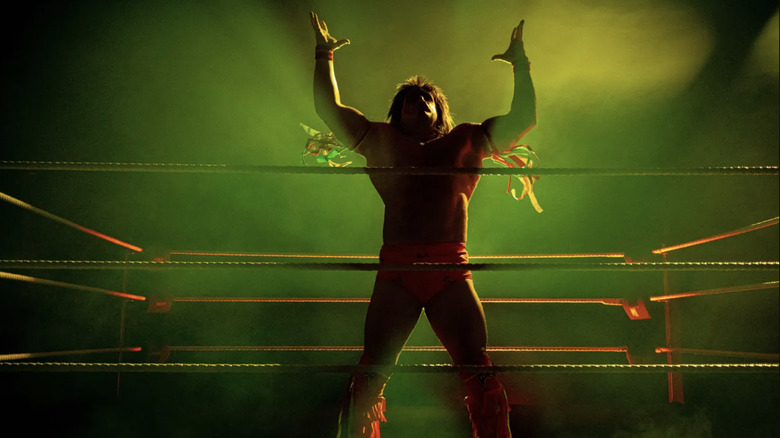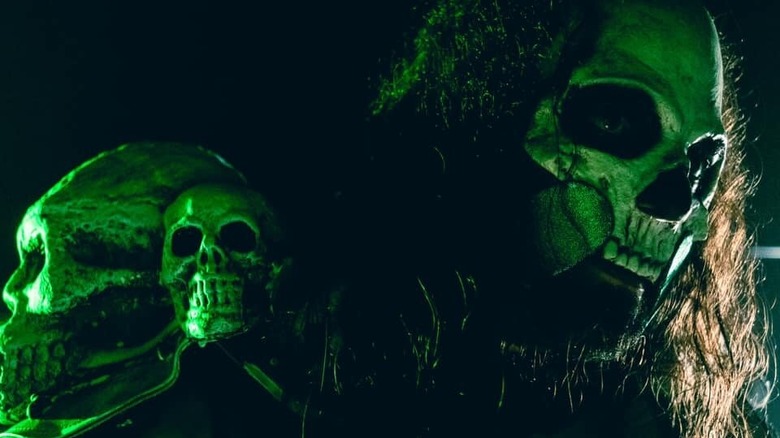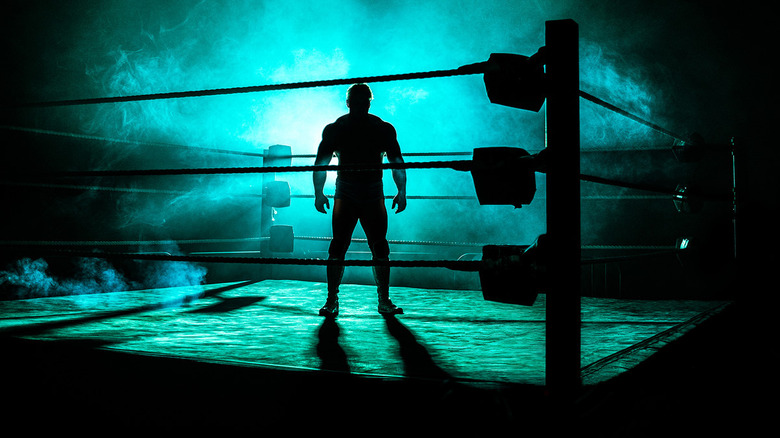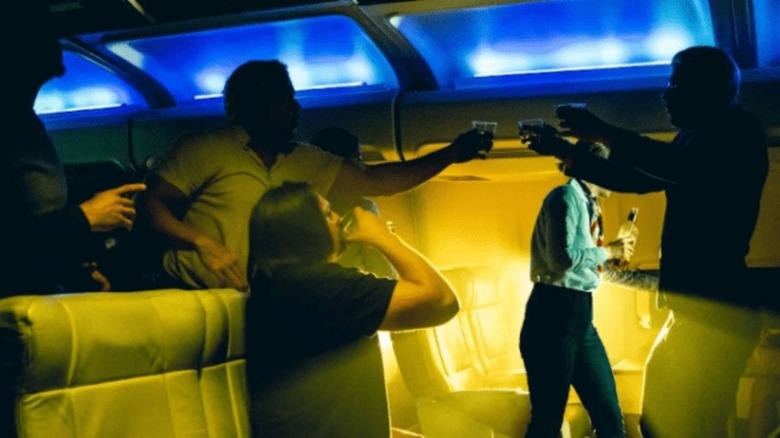Why Dark Side Of The Ring Is Essential Viewing For Wrestling Fans
I've always loved professional wrestling. As a little girl, I'd stay up way past my bedtime to watch WWF (now WWE) and WCW with my dad, cheering for the babyfaces and booing the heels with my entire body. I watched what appeared to be real-life superheroes fly through the air, overcome great odds, and execute acts of strength that didn't seem humanly possible. I would get caught up in the brilliant storylines that rivaled anything I had seen on scripted television at that point, and I'd get so caught up in the drama that I'd completely forget "it's fake." Suspending your disbelief when watching professional wrestling is like living inside of another universe. It's the closest I've ever felt to experiencing magic, and it's why I keep coming back to it year after year, despite the fact the world of sports entertainment has been a cesspool of toxicity since its inception.
On May 23, 1999, Owen Hart tragically lost his life in front of a packed crowd in the Kemper Arena in Kansas City, Missouri during the "Over the Edge" pay-per-view. I'll never forget that date, because it is not only one that lives in infamy for wrestling fans of all ages, but because it was also my ninth birthday. It's hard to forget overhearing my dad speculate with his best friend over what happened while "Happy Birthday Brittney-Jade" ice cream cake melted on the plate in front of me. It was my first taste of the corrupt, insidious, and depressingly bleak behind-the-scenes reality of professional wrestling — a world that executives did their best to hide under the guise of kayfabe, and the one Evan Husney and Jason Eisener do their best to bring to the spotlight with "Dark Side of the Ring."
The docuseries equivalent of CM Punk's 'pipe bomb'
Vice TV announced their 2022-2023 programming slate this week, and despite it being their most popular show ever, "Dark Side of the Ring" was not part of it. The show explores everything from the sex trafficking accusations of The Fabulous Moolah, Jimmy Snuka and the murder of Nancy Argentino, the closeted life of Chris Kanyon, Chris Benoit's horrific act of familicide, and the infamous "Plane Ride from Hell." The show has been mired in controversy from the very beginning, and that's a very, very good thing. "Dark Side of the Ring" was not a perfect show by any means, and while plenty of the stories have been told in unauthorized retellings like Shaun Assael and Mike Mooneyham's book "Sex, Lies, and Headlocks: The Real Story of Vince McMahon and World Wrestling Entertainment," the docuseries allows the people directly involved to have their voices heard in a way that doesn't require approval from federations.
Wrestling, as an art form, thrives in ambiguity. The lines between fiction and reality are so often blurred, that Terry Bollea, aka Hulk Hogan, had to testify in court that he does not have a 10-inch penis, but his character Hulk Hogan does. The magical realism of pro wrestling is part of its charm, but also allowed an abusive culture of deception to fester. If WWE is willing to lie and inflate their audience attendance numbers every year at WrestleMania, how can we expect them to be completely transparent with their controversial history? "Dark Side of the Ring" isn't just a great docuseries about the underbelly of pro wrestling, it's also a great piece of investigative journalism.
History is ugly — face it
It's unsurprising that there are people celebrating the possible death of "Dark Side of the Ring," viewing it as "WWE slander" or an unfair hit-piece looking to destroy the industry they love, refusing to accept that both Husney and Eisner are life-long wrestling fanatics. What makes "Dark Side of the Ring" so special is that it's clearly coming from people who love the medium and want it to be better. I've said for years as a queer, female wrestling fan, that I love pro-wrestling, but pro-wrestling typically doesn't love me back. The history of pro-wrestling is dark and unfortunate, but we have to face it instead of pretending it didn't happen. WWE is notorious for just erasing and ignoring the aspects of their programming that are in bad taste, like the multiple instances of Blackface, the time Vince McMahon dropped the N-bomb, and the entirety of Chris Benoit's career.
Meanwhile, all of the horrifically misogynist women's matches from the Attitude Era are still available in all of their glory, filled with embarrassing commentary from people like Jerry "Did You Get A Look at Those Puppies" Lawler. If you're a wrestling fan from any marginalized community, you've spent your entire life having to make concessions with a product that has never given a flying rat's ass about whether or not you like it. Make no mistake, "Dark Side of the Ring" is such a hot-button show because it forced a lot of people to reckon with a stark history they've been privileged enough to ignore until now. We've all heard these stories for years, but never quite like this.
The future of DSOTR
While Vice has yet to make an official statement regarding the future of "Dark Side of the Ring," their Twitter account was asking today for fan input on the type of stories they'd like to see on season 4. The "Plane Ride from Hell" episode drew a lot of heat from wrestlers interviewed for the episode who claimed their testimony was edited out of context, so there's a good chance the lack of renewal from Vice is because they're no longer interested in pursuing stories that could cause blowback. Perhaps the tweet is the show's subtle way of telling fans that the series is moving to a new home (my money is on Hulu) or maybe this is a way to generate numerical evidence that there's still a lot of stories left to explore, and plenty of voices to be heard.
Husney and Eisener are partnering with Dwayne "The Rock" Johnson's Seven Bucks Productions company for a new series to air on Vice, said to look at the territory days of professional wrestling before the McMahons bought up all the territories and created the juggernaut now known as WWE.



